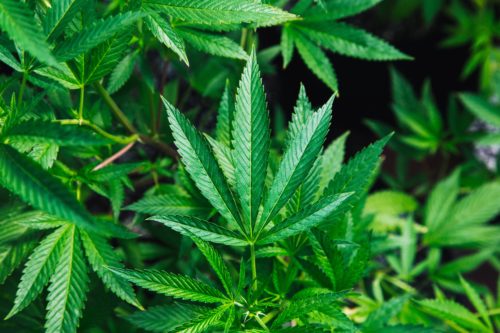
This week FDA sent a Warning Letter to a company engaged in marketing products containing cannabidiol (CBD) to consumers for a wide variety of uses in both humans and canines. In addition to the letter, the agency underscored their action with a press release. It is not the first letter sent to a manufacturer of CBD. But the letter comes in the wake of a statement issued late last year by then Commissioner Scott Gottlieb in which he outlined the agency’s perspective on the regulatory oversight of CBD. The statement followed the passage of the Agriculture Improvement Act by Congress which allowed for the removal of hemp from the Controlled Substances Act.
In his statement, Dr. Gottlieb noted that while Congress could make hemp legal to grow, FDA would still exercise regulatory authority over CBD products even if the CBD were derived from hemp and not cannabis. He stated that where products are believed to put people at risk, FDA will act. He specifically called out the number of therapeutic claims being made about non-FDA approved products that contain CBD. (CBD, it should be noted, is the basis for one FDA approved medication.) FDA noted that marketing products with therapeutic claims could steer patients away from products that have been evaluated for safety and efficacy, and noted further that it is unlawful to introduce food containing CBD into interstate commerce.
In the Warning Letter to the manufacturer, FDA created action from Dr. Gottlieb’s words. The agency took issue with several product claims associated with products from the manufacturer. There were many statements cited by the agency regarding the marketing of disease-specific therapeutic claims associated with CBD such as “CBD has also been shown to be effective in treating Parkinson’s disease” and “CBD was effective in killing human breast cancer cells.” Additional statements that were less direct were also mentioned by FDA – “CBD has been linked to the effective treatment of Alzheimer’s disease” and “CBD is being adopted more and more as a natural alternative to pharmaceutical-grade treatments for depression and anxiety.” In other words, direct statements or more softened versions that imply a therapeutic outcome were both problematic. Obviously FDA is wanting to make clear for other manufacturers where the line is drawn from a promotional viewpoint as there are sites out there making claims.
At the same time, FDA has also put into place its laborious process for assessing and acting upon an issue – a meeting to gather input, a docket to collect comments as the agency considers strategic development of regulatory oversight. It is a lengthy process.
But as FDA makes moves to bring clarity to the regulatory environment, the market moves on. One has to ask oneself about the ultimate and practical impact of FDA’s efforts. The marketing of CBD-containing products is widespread and clearly mainstream. Fields of industrial hemp are being planted all over because there is a viable market for the use of the product beyond the development of FDA approved medicines. And frankly, if one visits other manufacturers of CBD-related products one finds the marketing of CBD dosages in various forms of conveyance – gummies, oils, drops, vaping liquids. While FDA’s letter was sent to a company where therapeutic claims were being made, a visit to many manufacturer websites reveals a market where there is no mention a product claim at all. There is a good reason for that. Everyone already knows the claims – they don’t need manufacturers to tell them. And moreover, even if a consumer does need guidance, there are plenty of non-manufacturer sites that provide a good deal of information about potential uses for CBD. So from a communications perspective, FDA has drawn a line. From the perspective of the market, the horse has long left the barn.
Photo by Rick Proctor on Unsplash

